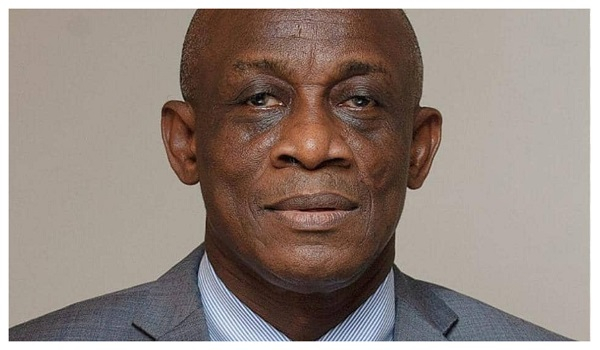Essay: Africa and the Echoes of Toussaint L'Ouverture
![]()
On the Side A of the 1971 rock album Santana III, Santana Band featured a piece titled “Toussaint L’Ouverture”. The intensity, liveliness, pulsating and compulsive rhythms, and soaring guitar solos of “Toussaint L’Ouverture” made it a favourite of rock aficionados on dance floors across the world in the early seventies.
Unbeknownst to many, the raw energy and dynamic tempo changes of the basically instrumental piece symbolized the fury and determination of the legendary leader of a historic revolution that was not taught in schools. The revolution, which led to the first independent Black nation on earth was led by Toussaint L’Ouverture.
François-Dominique Toussaint Bréda (1743–1803) aka Toussaint L’Ouverture, was born into slavery in the French colony of Saint-Domingue (now Haiti). He became a key leader of the Haitian Revolution and one of the most prominent figures in the history of the fight against slavery. Freed in his 30s, L’Ouverture educated himself in Enlightenment ideas and military strategy.
During the slave uprising in Saint-Domingue in 1791, his leadership capacities crystallized as he organized, negotiated, outmaneuvered and turned wild protests into disciplined and organized resistance hence he was acknowledged as a skilled and charismatic military leader.
Betrayed by Napoleon Bonaparte through subterfuge during negotiations, L’Ouverture was captured and taken to France in 1802. Though he did not live to see the liberation of his people from slavery and colonialism, his leadership laid the foundation for Haiti’s independence in 1804, the first successful slave revolt in history and the first Black republic in the modern world.
These are his last words in 1803: “In overthrowing me, you have done no more than cut down the trunk of the tree of black liberty…it will spring back from the roots, for they are numerous and deep”. Last words that burned hotter than lava then; timeless words that are currently as cogent and urgent as they were more than two centuries ago.
In a 2024 opinion of L’Ouverture, Phil McKraken wrote that: “Toussaint was a figure larger than life…His spirit lives on not just for Haitians but for all freedom loving people”. For McKraken, L’Ouverture is a symbol of organized resistance and emancipation from slavery, imperialism and its facades over the centuries.
More than two centuries after his death, the spirit of L’Ouverture and the essence of the last words, said in the bid to emancipate his country of Blacks from French slavery, still resonates in the contemporary affairs of Francophone Africa. This group of countries are still trapped in the documented postcolonial economic stranglehold of France, a country that has orchestrated more coups in Africa than any other through subterfuge, subversion and assassination.
It is said that in nature any species that is over hunting is sooner or later taken out because its over-hunting upsets the balance. Through the instrumentality of NATO (which, in practical terms, should be acronym for Nations Aligned to Terrorize Others) and other institutions of imperialism, the West has traumatized Africa by conspiratorially and systematically destabilizing the wealthiest nations and their systems and heartlessly and predatorily over exploiting their resources since Bismarck’s Berlin Butchery of Africa (BBBA) in 1885, which is euphemistically referred to as Berlin Conference.
Undoubtedly, the West (especially France) has over hunted in Africa. For instance, information has it that, hitherto, Mali earned $1bn annually from its gold mined by a French company. Today, with the expulsion of France, Mali earns $6bn annually. What an economic liberation from heartless exploitation! Similarly, Burkina Faso, Niger, Gabon etc. have liberated themselves from postcolonial economic stranglehold by France. Doubtlessly, Nature has commenced the process of taking out the over hunting predator.
Going by L’Ouverture’s metaphor, the West systemically or violently “cut down the trunk[s]” called Patrice Lumumba, Kwame Nkrumah, Moamar Gaddafi, Thomas Sankara etc. However, from the roots that “are numerous and deep”, Assimi Goita sprang from the soil of Mali in 2020 thereby commencing the natural process of taking out the predator that L’Ouverture contended with more than two centuries ago. From the soil of Burkina Faso, Ibrahim Traore sprang in 2022 and, in quick succession in 2023, Abdourahamane Tchiani and Oligui Nguema sprang from Niger and Gabon, respectively.
In May 2024, Mahamat Déby won the presidential election in Chad and expressed strong anti-French sentiments, a radical departure from the policy posture of his late father. Like L’Ouverture, these leaders did not strike for conquest; they fought for liberation from the stranglehold of a participant in the BBBA of 1885. Their action speaks eloquently and volubly of the disillusionment with French overreach in the continent.
In September 2023, Mali, Burkina Faso, and Niger formed the Alliance of Sahel States (AES). Though relatively new, it is a significant geopolitical bloc that marks a dramatic shift in the political and security landscape of West Africa. With their common heritage of French colonialism and current experience of military coup, they are collectively navigating a complex transition away from France and the Economic Community of West African States (ECOWAS), toward greater self-reliance and regional solidarity. This marks the end of an era for France; an era that has dire consequences for the former colonial power.
Commenting on the anti-France wild fire in Francophone Africa, social critic and blogger, Michael A.G. Iboh, speaks with optimism that “CFA Franc, the last chain of French colonization, has been broken. Granted that the West will do everything to crush Burkina Faso but day has broken in Africa and the dawn is here not just in Ouagadougou but across Africa”.
There is palpable unease at Palis de l’Elysee; that is understandable. Former French president Jacques Chirac once stated thus: “without Africa, France will slide down in the rank of a third world power”. That shows the strategic importance to French economy.
In the above regard, Florida-based Nigerian social critic, Daag Josiah, holds that “Though the colonial boat has been rudely rocked and it cannot be business as usual, a relationship based on mutatis-mutandis could be structured.” Invoking the hospitality and generosity that characterize Africa, William has invited France to “come…with integrity and honour; we want to share with you our wealth and invite you to share with us”.
With “strategic self interest” being the traditional mindset of imperialism, will France accept the simple conditionality of coming to the table with “integrity and honour” where the relationship departs from “master-servant” to partnership or will it insist on the status quo?
The truth remains that many roots of the hewed trunk of L’Ouverture have sprout and his spirit has reincarnated simultaneously across Francophone Africa. At last, Prof Claude Ake’s 1978 intellectual prophecy, Revolutionary Pressure in Africa, has touched down on the African soil and the torch of liberation has lit a wild fire.
Going forward, France and the West must rework relationships with Africa. This is feasible and achievable; each should come to the table with genuine desire for mutuality and reciprocity. The basic requirement is that the imperialist mindset of “might is right” and inordinate self-interest, which Greg Mills aptly attributed Africa’s poverty to, should give way for cooperation and partnership.
One thing is for sure, the old order is history. It is not a coincidence that this is happening when the majestic sound of Star-Spangled Banner is speedily fading marking the beginning of the end of an empire whose light is dimming into twilight while the silhouette of the Dragon of the East is bursting out in radiant colors. Naturally, the sun of global power play is setting in the West and rising in the East
Prof. Jason Osai is a professor of Development Studies and Head, Department of Political Science, Faculty of Social Sciences, Rivers State University, Port Harcourt, Nigeria









